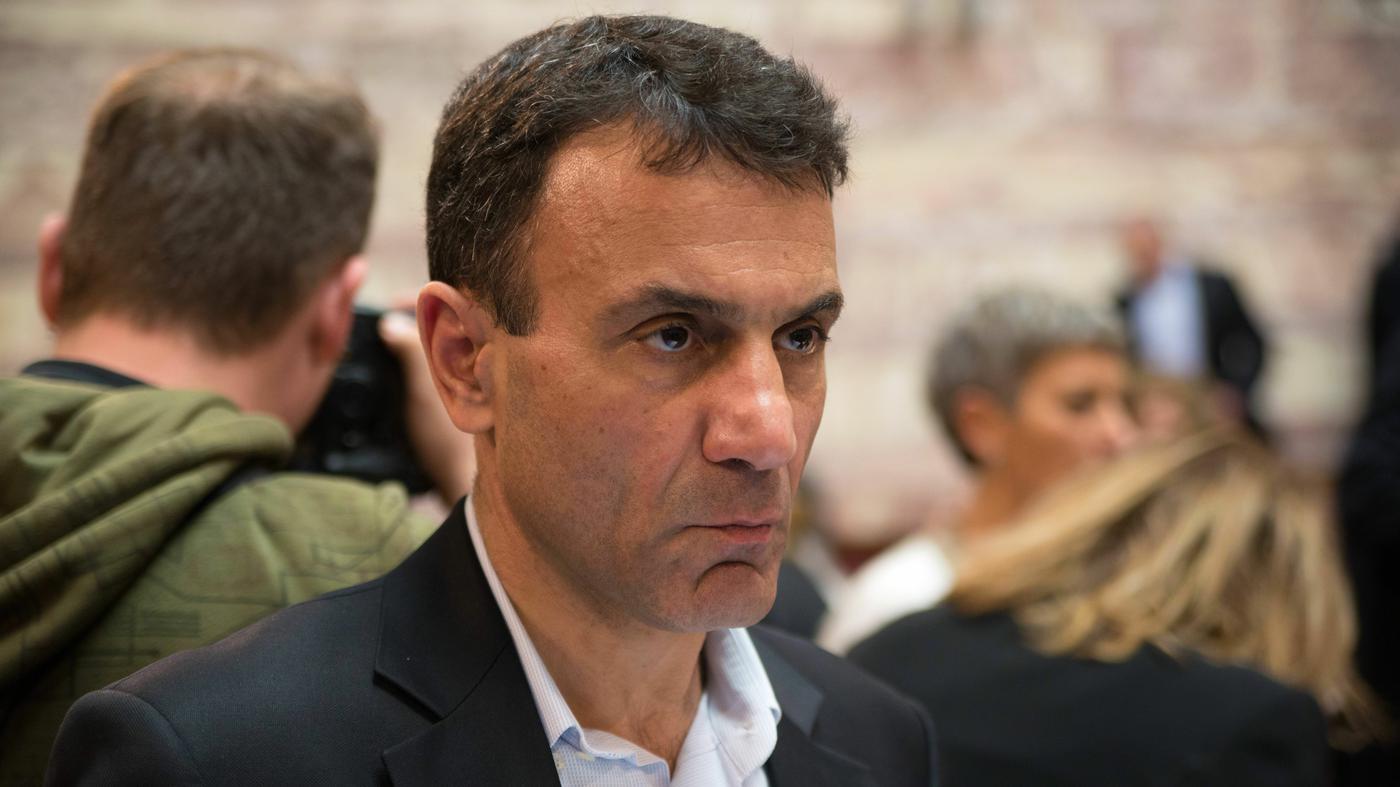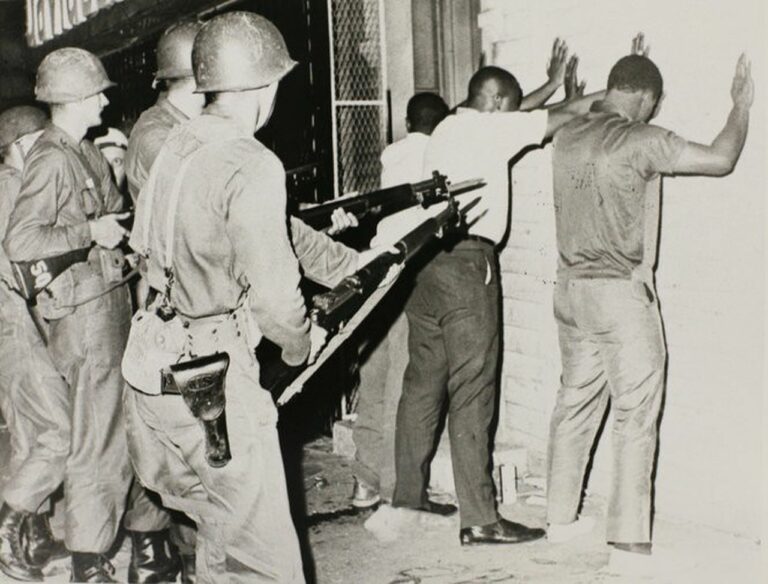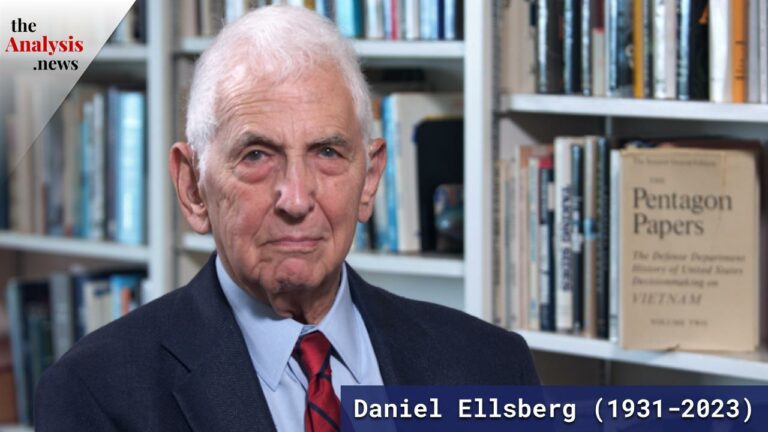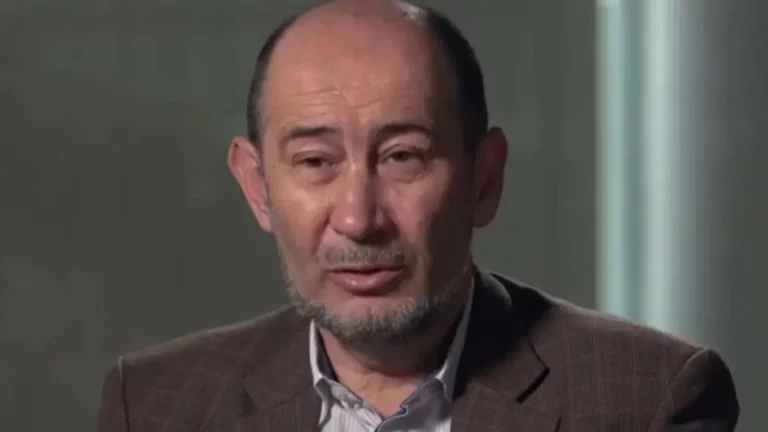Growing Up in the Greek Police State – Costas Lapavitsas on Reality Asserts Itself (pt 1/8)
This interview was originally published on May 22, 2014. Mr. Lapavitsas, author of ‘How Finance Exploits Us All’, traces his own political development, coming of age during the Greek dictatorship.
PAUL JAY, SENIOR EDITOR, TRNN: Welcome to The Real News Network. I’m Paul Jay in Baltimore. And welcome to a new edition of Reality Asserts Itself.
Baltimore has many distinctions, one of which is not that well known, certainly not outside Baltimore. But Baltimore is the home of the subprime mortgage. It was in the 1990s that the African-American population of Baltimore, and to some extent New York and Chicago, but primarily Baltimore, were targeted to have loans at under-market rate that would later balloon and force people out of their houses. Of course, we know this all became a big national scheme, where these mortgages would then be packaged and sold to pension funds and foreign banks and enormous fees would be earned. Of course, the cost of all this was paid by thousands of people losing their houses. In fact, in the year 2000 the number-one reason for foreclosures in Baltimore–now hear that: the year 2000, well before this became this national phenomenon–the number-one cause of foreclosures in Baltimore was foreclosures caused by people who couldn’t make up these payments on subprime mortgages.
Of course, the thinking by the banks, Wells Fargo being one of the more famous of them in Baltimore, was, one, American real estate could never go down, so you can just keep selling the same place to people over and over again after they default, and two, you don’t really care if you could anyway, ’cause you’re making so much money on the derivatives play that it kind of doesn’t even matter what happens to the property.
Well, many years after this began in Baltimore, in 2012, there was an actual settlement. Baltimore had sued Wells Fargo for predatory lending, the city had sued Wells Fargo. City of Baltimore dropped the lawsuit against Wells Fargo when the Justice Department negotiated a deal with Wells Fargo to pay a $175 million penalty nationwide. That represented 4 percent of one quarter of a year, one quarter’s profit. Baltimore got $4.5 million.
Tens of thousands of people were thrown out of their houses and millions of dollars lost by homeowners. Of course, when people lose their houses, it’s not just the people in those houses that suffer. For those of you who have seen the show The Wire, one of the reasons you see all of these boarded-up houses in Baltimore is not just because people have been thrown out but because neighborhoods start to deteriorate. As houses are foreclosed on, other houses start not to be able to get loans from banks to get fixed up, and places that were vibrant and real communities wind up half-vacant and you–what begins a process of, more or less, ethnic cleansing.
That’s just one small example how finance exploits all of us. And that’s the subtitle of a new book. And its author is now with me in the studio.
Thanks for joining us.
COSTAS LAPAVITSAS, PROF. ECONOMICS, UNIV. OF LONDON: Pleasure to be here.
JAY: So Costas Lapavitsas is a professor of economics at the School of Oriental and African Studies, University of London. He’s a member of Research on Money and Finance (RMF) and the lead author of RMF’s book Crisis in the Eurozone. His previous publications include Social Foundations of Markets, Money and Credit and Political Economy of Money and Finance. His most recent book is Profiting without Producing: How Finance Exploits Us All.
Thanks for joining us.
So we’re going to have a pretty wide-ranging conversation about finance. But as most of you know, on Reality Asserts Itself, in the first segment we come to know a little bit of the background about our guest, mostly about how they came to think what they think, sort of pivotal events in their life. And we’re going to start with that with Costas.
So give us a little background, where you’re born, what kind of house you grew up in. I mean, I know you grew up in Greece, and Greece is a pretty political place.
LAPAVITSAS: Yeah, that’s correct.
I was actually born in the city of Thessaloniki (Salonica) in the north of Greece. It’s the biggest city of Greek Macedonia. So I don’t come from Athens. And my father was a medical doctor and my mother was a teacher. So it was a pretty–fairly standard background for a lot of people in Salonica. It’s a very professional and industrial city, that is.
JAY: Or was.
LAPAVITSAS: Or was, to be more accurate, and we can discuss this as we–
JAY: Yeah, we’re going to get into that too.
LAPAVITSAS: –go along. Yeah.
Politics was always present, but in a very strange way, because when I was growing up, there was a dictatorship in Greece.
JAY: What year are we in?
LAPAVITSAS: Well, I was born in 1961, but when I started making sense of the world, the dictatorship had already been imposed on Greece in 1967, so it wasn’t easy to discuss politics. In fact, people avoided it. And even before that, the regime in Greece was very, very authoritarian, because it was barely 20 years–it was maybe 15 or so years since the end of the civil war in Greece, and therefore you didn’t really discuss politics openly, you couldn’t really take left-wing positions. It was a very, very dangerous time.
JAY: It was a full-fledged police state.
LAPAVITSAS: Without question, with concentration camps, with people in prison, with murders of left-wingers and even executions in the ’50s. So it wasn’t an easy place to discuss left-wing politics or to advocate left-wing politics, although it existed, this kind of politics, very openly.
My father was a very strong influence in this regard for me, because my father was–like many of his generation, he learned politics in the Second World War. He was a student then. He became drawn into the cauldron of the Second World War. He became a communist–as I say, like the best of his generation. And he belonged to the resistance against the Nazi forces. And he followed the path of his generation. He was sent to a concentration camp and–.
JAY: Sent to a concentration camp by the Nazis or by the Greek government after the war?
LAPAVITSAS: No, no. By the Greek government after the war.
JAY: Which is a part of that history which isn’t talked about very much.
LAPAVITSAS: No. But the Greek government–under the auspices of the British and the American helpers and mentors of the Greek right wing, many, many thousands of people of my father’s generation went to various types of concentration camps.
One of them was a very big one near Athens. It’s an island. It’s a notorious island in Greek history, where an entire generation of people had their studies interrupted, everything they did interrupted. They couldn’t put any charges on them. If they could put charges on them, they would have locked them up or shot them. And they interrupted their studies, called them up in the army, and created a massive concentration camp which–.
JAY: Yeah, it’s such an important part of the postwar narrative that is completely missing from the official narrative, and particularly in the United States. Nobody wants to talk–.
LAPAVITSAS: But that’s where the Cold War really started. The Cold War really began in Greece. And that’s where the issue was really played out, and that’s really what forced the issue.
JAY: And just to be really clear, we’re talking about people who were really at the forefront of fighting the Nazi occupation and the Nazis. These are the people, the partisans, who were rounded up and thrown into these camps and many, many of them killed.
LAPAVITSAS: Yes, very much so. And as I say, my father was part of this movement, like many of–he was not exceptional at all. He was just–like many others of his generation, he believed in social equality like many others do, and he was caught up in this and joined the Communist Party, took part in the resistance, and paid the price of that. But the left-wing ideas and all the other aspirations [incompr.] his generation and he himself espoused were always about at home.
And for me this was like a secret history. I grew up with a view of the Second World War which was very, very unconventional. To me it wasn’t the case of a fight between nations and eventually the U.S. nation arrives and liberates Europe. It wasn’t like that at all. It was a fight between the left and the right, between the Nazis and the communists, and it was a fight that basically the Soviet Union won. This is how I grew up, this is how I began to understand the world, and I think this is far closer to what actually happened in the Second World War.
JAY: Yeah. We did a series based on Oliver Stone and Peter Kuznick’s piece they did for Showtime which kind of retells this history and actually kind of rectifies this idea that it was the Soviet Union that broke the back of the Nazis.
LAPAVITSAS: Absolutely.
JAY: I think the historical record’s pretty clear on that.
LAPAVITSAS: Yeah, there’s no question at all.
So, in any case, for me, left-wing ideas were of this type that were always present. I sort of imbibed them through talk and so on.
And then the event that really made things clear was the fall of the dictatorship in Greece in 1974. I was very young. I was a young adolescent boy then. But the event was remarkable.
JAY: But your formative years as a child and early teenager is in a place where you can be arrested for espousing left-wing views.
LAPAVITSAS: Oh, people were customarily arrested. And towards the–after ’67, in fact, there was a fully fledged dictatorship where left-wing ideas were proscribed and hounded. So that’s where I grew up and that’s what I knew. I mean, obviously, I was very little then and I didn’t quite understand the half of it, but you do pick it up. It’s not as if–and you know from the way my father would behave at home and elsewhere, but also the way my mother would behave, you grow up in an environment in which you know you’ve got to be very careful of what you say. You’ve got to protect yourself. You’ve got to protect your family, your friends. And even as a little boy, you learn that it’s not safe to talk about certain things.
JAY: And what year is the dictatorship over?
LAPAVITSAS: The dictatorship in Greece fell in 1974.
JAY: And how old are you?
LAPAVITSAS: I’m about 13. But as I say, I’m ready in some ways for left-wing ideas. And for me what happened in 1974 was a complete revelation. I’ve never seen anything like that, and–not since then, in any case. There was a massive outburst of popular joy and anger. It’s like a release of pent-up frustration and really disillusionment that had piled up and became something else. It wasn’t just the seven years of the dictatorship; it was also the period before that, when it was a police state. And suddenly all that came out and people took to the streets, and hundreds of thousands of people were out. And I just couldn’t believe–I’d never seen anything like that. To me it was society in motion and action.
And then, through the period that followed, left-wing ideas became common currency, and all the repressed parts of the left came out, and all the stuff that you couldn’t discuss suddenly became openly debated. And my generation grew up in that. And we were in many ways, all of us, radicalized, some more, some less.
But that’s when I came into systematic contact with left-wing ideas and I began to read texts and to think seriously about it. And as I say, I was ready for it from my own family.
JAY: And did your father maintain his left-wing view of the world?
LAPAVITSAS: My father died a communist, yes. Although he was a doctor and practicing doctor and so on, he never changed his mind. I come from a part of Greece where people tend to be quite stubborn when it comes to these things. So I’ve inherited that stubbornness. So, yes, my father died very much a communist.
JAY: How about your mother?
LAPAVITSAS: My mother was never–my mother was a person of the center, as it were, always democratic in her outlook, never on the right, but not of that kind of persuasion as my father was, or as I am, indeed.
So that really, insofar as–that really–I mean, I became then involved in political action as a young man.
JAY: Please join us for part two of Reality Asserts Itself with Costas Lapavitsas on The Real News Network.
“Costas Lapavitsas is a professor of economics at the School of Oriental and African Studies, University of London and was elected as a member of the Hellenic Parliament for the left-wing Syriza party in the January 2015 general election. He subsequently defected to the Popular Unity in August 2015.”






